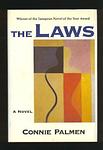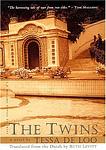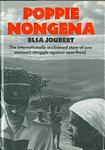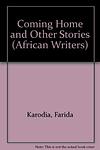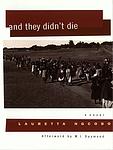The Greatest Dutch, South African "Fiction" Books Since 1970
Click to learn how this list is calculated.
This list represents a comprehensive and trusted collection of the greatest books. Developed through a specialized algorithm, it brings together 300 'best of' book lists to form a definitive guide to the world's most acclaimed books. For those interested in how these books are chosen, additional details can be found on the rankings page.
Genres
Countries
Date Range
Reading Statistics
Click the button below to see how many of these books you've read!
Download
If you're interested in downloading this list as a CSV file for use in a spreadsheet application, you can easily do so by clicking the button below. Please note that to ensure a manageable file size and faster download, the CSV will include details for only the first 500 books.
Download-
1. Disgrace by J M Coetzee
"Disgrace" is a novel that explores the life of a middle-aged professor in South Africa who is dismissed from his position after having an affair with a student. After losing his job, he moves to the countryside to live with his daughter, where they experience a violent attack that significantly alters their lives. The story delves into themes of post-apartheid South Africa, racial tension, sexual exploitation, and the struggle for personal redemption.
-
2. Waiting for the Barbarians by J M Coetzee
The novel is set in a small frontier town of an unnamed empire, where the magistrate lives a life of civil service and relative peace. His world is disrupted when the Empire declares a state of emergency due to rumors of barbarian uprising. The magistrate becomes a critic of the Empire's brutal and inhumane methods of dealing with the perceived threat, which leads to his arrest and torture. As he tries to understand his role in the vast political machinery, he also grapples with questions of power, justice, and humanity.
-
3. Life & Times of Michael K by J M Coetzee
Set in South Africa during a civil war, the novel follows the journey of Michael K, a simple gardener with a cleft lip. When his mother falls ill, he attempts to take her back to her rural birthplace. After she dies en route, Michael continues the journey alone, struggling to survive in a war-torn landscape, while also being caught up in the bureaucratic red tape of the dystopian society. The story explores themes of freedom, survival, and the human spirit's resilience against adversity.
-
4. Burger's Daughter by Nadine Gordimer
"Burger's Daughter" is a novel centered around Rosa Burger, a white woman in South Africa during the apartheid era. The narrative delves into Rosa's life and struggle to find her identity, while also dealing with the legacy of her parents who were anti-apartheid activists. This story provides a deep look into the political and social climate of South Africa during a time of racial segregation and oppression.
-
5. The Discovery of Heaven by Harry Mulisch
"The Discovery of Heaven" is a philosophical novel that explores the relationship between mankind and the divine. The story revolves around two friends, an astronomer and a philologist, who are manipulated by heavenly forces to father a child who is destined to return the Ten Commandments to God. As the narrative unfolds, it delves into complex themes such as friendship, love, art, science, and the existence of God, presenting a thought-provoking analysis of the human condition.
-
6. July's People by Nadine Gordimer
"July's People" is a novel set in a hypothetical future where South Africa's apartheid system has collapsed and the nation is embroiled in a brutal civil war. The story follows a liberal white family who, fleeing the violence, are taken in by their black servant, July, in his rural village. The book explores the power dynamics and complexities of their relationship, as they navigate this new reality where traditional roles are reversed, and grapple with issues of race, class, and privilege.
-
7. A Dry White Season by Andre Brink
Set in apartheid-era South Africa, "A Dry White Season" follows the story of Ben Du Toit, a white schoolteacher who becomes involved in the fight against the system after his gardener's son is brutally beaten by the police. As he delves deeper into his quest for justice, he becomes increasingly isolated from his community and his family, and ultimately pays the highest price for his convictions. The novel is a powerful exploration of the devastating effects of racial injustice and the courage it takes to stand against it.
-
8. All Souls' Day by Cees Nooteboom
"All Souls' Day" is a novel about a Dutch documentary filmmaker, who, after losing his wife and daughter in a car accident, moves to Berlin to escape his grief. The protagonist becomes entangled in a series of romantic relationships while struggling to come to terms with his loss. The book blends narrative with philosophical musings on memory, loss, and the nature of time, using the city of Berlin as a backdrop to illustrate the protagonist's internal journey.
-
9. Dusklands by J M Coetzee
"Dusklands" is a novel divided into two distinct parts, each examining the theme of imperialism. The first part follows a psychologically unstable American government researcher during the Vietnam War, who is tasked with developing propaganda to justify the conflict. The second part is a historical narrative set in the 18th century, exploring the violent colonization of South Africa by the Dutch. The stories parallel each other, highlighting the destructive nature of imperialism and the psychological effects it has on individuals.
-
10. In the Heart of the Country by J M Coetzee
Set in South Africa, this novel tells the story of a woman living on a remote farm who is isolated not only geographically but also emotionally and psychologically. After her father marries his young mistress, the protagonist's life spirals into madness and tragedy. The narrative explores themes of loneliness, power dynamics, and the harsh realities of life in apartheid-era South Africa, all presented through the protagonist's fragmented and unreliable perspective.
-
11. Rituals by Cees Nooteboom
"Rituals" is a philosophical novel that explores the lives of three men, each dealing with existential crises in post-World War II Netherlands. The narrative delves into their individual searches for meaning and purpose, their struggles with societal norms, and their attempts to establish personal rituals as a way to create order in a seemingly chaotic world. The book is a profound meditation on the human condition, examining themes of time, death, and the nature of reality.
-
12. Smell of Sadness by Alfred Kossmann
"Smell of Sadness" is a poignant narrative that revolves around a man who, after being separated from his wife during the Second World War, embarks on a journey to find her. The story takes us through the protagonist's experiences, his encounters with various people, and his personal struggles. The book is a deep exploration of human emotions, particularly the profound sadness that permeates through the protagonist's life, making it a moving and thought-provoking read.
-
13. Ancestral Voices by Etienne van Heerden
"Ancestral Voices" is a haunting novel set in South Africa during the apartheid era. The story follows a young boy who grows up in a small rural town, navigating a complex web of familial relationships and secrets. As he matures, he becomes increasingly aware of the racial and social injustices that surround him. The book explores themes of identity, heritage, and the harsh realities of life under apartheid, all weaved together with a deep sense of the mystical and the supernatural.
-
14. Gimmick! by Joost Zwagerman
"Gimmick!" is a novel that explores the life of a young artist in the Amsterdam art scene during the 1980s. The protagonist is caught in a world of excess, parties, drugs, sex, and betrayal while trying to find his place and make a name for himself. The story delves into the struggles of artistic life, the lure of fame and the pitfalls of success, providing a raw and gritty depiction of the times.
-
15. The Conservationist by Nadine Gordimer
The book is a character-driven novel set in South Africa during the apartheid era. The protagonist is a wealthy, white industrialist who buys a farm with the intention of using it as a weekend retreat. However, the farm proves to be unprofitable and difficult to manage, and the protagonist's life becomes intertwined with the lives of the black people who live and work on the land. The narrative explores themes of ownership, identity, and the struggle for meaning in a racially divided society.
-
16. The Laws by Connie Palmen
"The Laws" is a philosophical novel that follows the life of a young woman studying philosophy who becomes intrigued by the concept of laws, both societal and personal. Over the course of seven years, she engages in relationships with seven different men, each representing a different aspect of her studies including a priest, a physicist, an artist, a psychiatrist, a lawyer, a biologist, and a writer. Each relationship provides a new perspective on her quest to understand the laws of the universe and human nature.
-
17. The Twins by Tessa De Loo
"The Twins" is a poignant narrative about twin sisters, separated at a young age due to the Second World War. One sister grows up in the Netherlands under Nazi occupation, while the other is raised in Germany as part of the Hitler Youth. After six decades of separation, they meet again and begin to share their experiences, discovering the impact of the war on their lives and the stark differences in their upbringing. The book explores themes of identity, loyalty, and the long-lasting effects of war on individuals and families.
-
18. Die Swerdjare Van Poppie Nongena by Elsa Joubert
"Die Swerdjare Van Poppie Nongena" is a powerful and poignant novel that tells the story of Poppie, a black South African woman, during the apartheid era. Set in the 1960s, Poppie faces immense challenges as she navigates the oppressive system that separates her from her family and forces her to endure constant discrimination and hardship. Through Poppie's experiences, the book explores themes of resilience, love, and the human spirit's ability to triumph in the face of adversity.
-
19. The Steam Pig by James McClure
In this gripping crime novel, a tenacious detective navigates the complex social and racial landscape of 1970s South Africa to solve a perplexing murder case. The story begins when a body is discovered inside a clay pig sculpture, leading the detective on a trail through the seedy underbelly of the city. As he delves deeper into the investigation, he encounters a diverse cast of characters and uncovers a web of deceit and corruption. The detective's sharp instincts and unwavering commitment to justice drive him to unravel the mystery, despite the challenges posed by the apartheid-era setting.
-
20. Fiela's Child by Dalene Matthee
The book is a poignant tale set in 19th-century South Africa, where a young white boy, believed to be lost by his biological family, is found and raised by Fiela, a compassionate and strong-willed woman of the Khoikhoi community. The story unfolds as the boy, named Benjamin, grows up with a deep sense of belonging in Fiela's family, only to have his identity and future thrown into turmoil when government officials, enforcing racial classifications of the time, remove him from his home. He is then forced to live with a destitute white family in the dense Knysna Forest, leading to a profound exploration of identity, race, and the meaning of family, as both Fiela and Benjamin struggle to reclaim their lives and assert their rightful place in a society governed by strict racial divides.
-
21. Another Country by Karel Schoeman
"Another Country" is a historical novel set in 19th century South Africa, following the life of an Irish woman who immigrates to the country. The narrative explores her experiences and struggles as she adapts to the harsh realities of a new land, while also providing a vivid portrayal of the racial, political, and social tensions of the era. The book offers a deep insight into the complexities of colonialism and the formation of modern South Africa.
-
22. Between Two Worlds by Miriam Tlali
"Between Two Worlds" is a compelling narrative that explores the harsh realities of apartheid in South Africa through the eyes of its protagonist, Muriel. The story delves into Muriel's life as she navigates the oppressive societal structures that enforce racial segregation and discrimination. Working in a Johannesburg store, she encounters a microcosm of apartheid's broader societal impacts, including the complexities of interracial relationships and the struggle for dignity and identity amidst pervasive racism. The novel poignantly captures the personal and political conflicts faced by those trapped between the traditional and the modern, the rural and the urban, in a time of profound injustice.
-
23. Coming Home And Other Stories by Farida Karodia
"Coming Home And Other Stories" is a collection of short stories that delve into the lives of individuals grappling with the complexities of identity, displacement, and belonging, primarily within the context of South African society. The narratives explore themes of apartheid, racial discrimination, and the struggle for liberation, as well as the personal challenges of family dynamics, love, and loss. Through a variety of characters and settings, the stories offer a poignant reflection on the human condition and the search for home, both in a literal and metaphorical sense, highlighting the resilience of the spirit amidst social and political turmoil.
-
24. And They Didn't Die by Lauretta Ngcobo
This novel explores the resilience and struggles of a group of women in a rural South African village during the apartheid era. As they grapple with oppressive laws, land seizures, and the forced labor system that sends their men to work in distant mines, the women band together to sustain their families and community. Their story is one of survival and solidarity in the face of systemic racism and sexism, highlighting the intersection of personal and political battles while showcasing the strength and endurance of women under extreme hardship.
-
25. Master Harold...And The Boys by Athol Fugard
The play takes place in South Africa during the era of apartheid and revolves around the complex relationship between a young white boy and two black men who work in his mother's tea room. The boy has grown up with these men and shares a close bond with them, but as he struggles with personal turmoil and the pressures of the racist society around him, he begins to assert his racial superiority, leading to a devastating display of discrimination and the shattering of their familial relationship. The narrative explores themes of racism, human dignity, and the impact of societal injustice on personal relationships.
Reading Statistics
Click the button below to see how many of these books you've read!
Download
If you're interested in downloading this list as a CSV file for use in a spreadsheet application, you can easily do so by clicking the button below. Please note that to ensure a manageable file size and faster download, the CSV will include details for only the first 500 books.
Download













